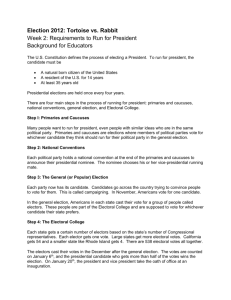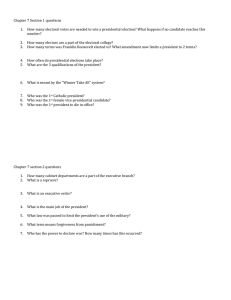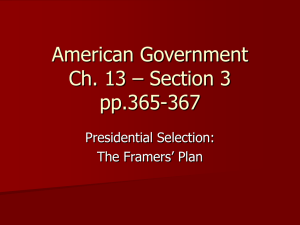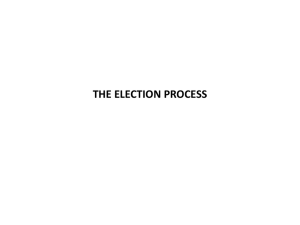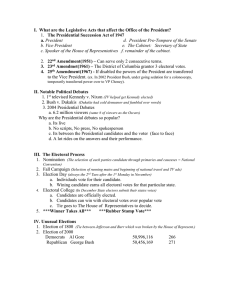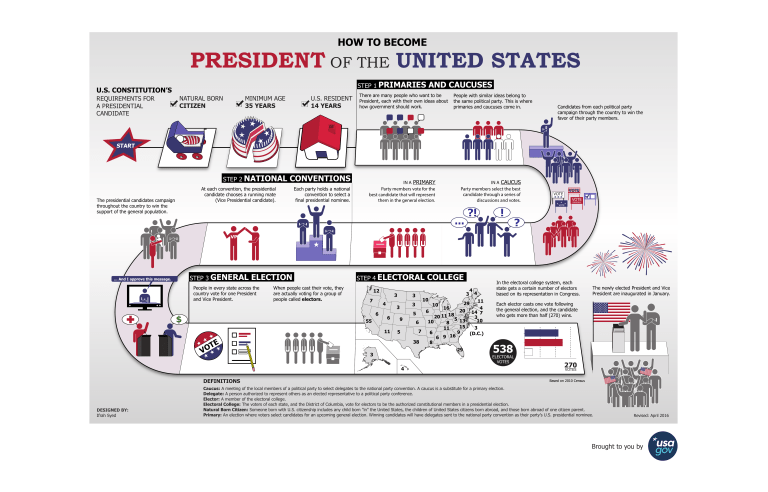
HOW TO BECOME PRESIDENT OF THE UNITED STATES STEP 1 PRIMARIES U.S. CONSTITUTION’S REQUIREMENTS FOR A PRESIDENTIAL CANDIDATE NATURAL BORN CITIZEN MINIMUM AGE 35 YEARS U.S. RESIDENT 14 YEARS STEP 2 NATIONAL CONVENTIONS AND CAUCUSES There are many people who want to be President, each with their own ideas about how government should work. People with similar ideas belong to the same political party. This is where primaries and caucuses come in. Candidates from each political party campaign through the country to win the favor of their party members. START At each convention, the presidential candidate chooses a running mate (Vice Presidential candidate). The presidential candidates campaign throughout the country to win the support of the general population. Each party holds a national convention to select a final presidential nominee. IN A PRIMARY Party members vote for the best candidate that will represent them in the general election. IN A CAUCUS Party members select the best candidate through a series of discussions and votes. ... ?! ! VOTE VOTE VOTE PRESIDENT VOTE ? VP STEP 3 GENERAL ... And I approve this message. ELECTION People in every state across the country vote for one President and Vice President. When people cast their vote, they are actually voting for a group of people called electors. STEP 4 ELECTORAL 12 7 4 6 $ 55 3 3 6 11 9 DESIGNED BY: Ifrah Syed 6 38 10 16 20 11 18 3 4 29 20 4 11 4 14 7 3 10 5 13 15 3 9 6 (D.C.) 16 9 6 8 10 8 11 29 In the electoral college system, each state gets a certain number of electors based on its representation in Congress. The newly elected President and Vice President are inaugurated in January. Each elector casts one vote following the general election, and the candidate who gets more than half (270) wins. 538 ELECTORAL VOTES 4 DEFINITIONS 3 6 5 7 5 TE VO 10 3 3 COLLEGE 270 VOTES Based on 2010 Census Caucus: A meeting of the local members of a political party to select delegates to the national party convention. A caucus is a substitute for a primary election. Delegate: A person authorized to represent others as an elected representative to a political party conference. Elector: A member of the electoral college. Electoral College: The voters of each state, and the District of Columbia, vote for electors to be the authorized constitutional members in a presidential election. Natural Born Citizen: Someone born with U.S. citizenship includes any child born "in" the United States, the children of United States citizens born abroad, and those born abroad of one citizen parent. Primary: An election where voters select candidates for an upcoming general election. Winning candidates will have delegates sent to the national party convention as their party’s U.S. presidential nominee. Revised: April 2016 Brought to you by

